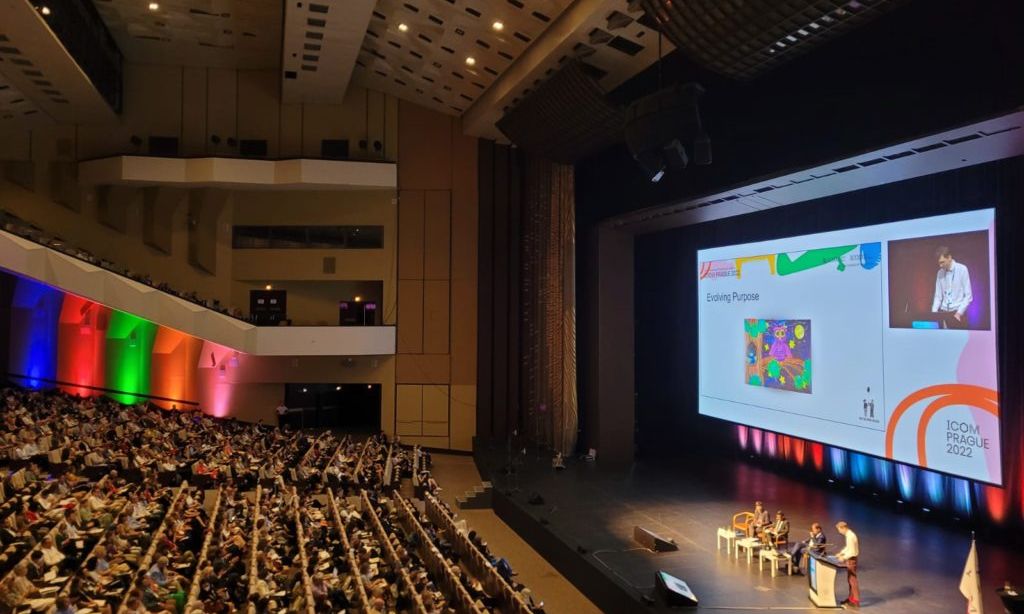Icom is the world’s most significant museum organisation, and its annual conference is the largest gathering of museum professionals in the world
Courtesy: Icom
The International Council of Museums (Icom) has released its first public remarks on the conflict in Gaza since the attacks by Hamas on Israel on 7 October.
In a statement published today on its website, the Unesco-affiliated organisation said: “Icom expresses its deep concern about the current violence affecting Israeli and Palestinian civilians and deplores the significant humanitarian consequences that the conflict has had over the past weeks.”
The statement makes no direct reference to Hamas, instead calling on “all parties to respect international law and conventions” and for an immediate ceasefire.
Icom is the world’s most significant museum organisation, and seeks to establish professional and ethical standards for the global museum community. The organisation is affiliated with Unesco, part of the United Nations.
The statement comes four days after a stark intervention from Icom Israel, who, in an unusually strong-worded open letter published on 22 October, demanded with "the utmost fervour" that Icom actively "condemn [Hamas’s] acts of terror,” the letter read.
Published via Icom Israel, the national committee representing Israel in Icom, the letter was signed by the directors of Israel’s major museums, inclusing the directors of the Israel Museum in Jerusalem, the Tel Aviv Museum of Art in Tel Aviv and Haifa Museums.
The letter goes on to say: “We sincerely implore the Icom community to condemn the massacre of defenceless citizens by Hamas and to declare a bold stance in support of humanity and liberalism.”
Speaking to The Art Newspaper, Icom Israel made the following statement in response to Icom's first public remarks: “Up to this moment, no response letter has arrived at Icom Israel and we learned about the statement from the Icom website. This is not the response we expected to the request to condemn mass slaughter of innocent civilians by a terrorist organisation. We are deeply disappointed.”
The full statement that Icom published today reads: “The International Council of Museums (Icom) expresses its deep concern about the current violence affecting Israeli and Palestinian civilians and deplores the significant humanitarian consequences that the conflict has had over the past weeks. Icom extends its sincerest condolences to those who have lost family, friends, and community due to the violence.
“Icom stands firm in its commitment to preserving cultural heritage and recalls the imperative of all parties to respect international law and conventions, including the 1954 Hague Convention for the Protection of Cultural Property in the Event of Armed Conflict and its two protocols. Icom also warns against the potential increase in the smuggling and destruction of cultural objects due to the conflict in the affected region and recalls international legal obligations that work to prevent the illicit import, export, and transfer of cultural property, such as the 1970 Unesco Convention and the 1995 Unidroit Convention.
“Icom thus expects an immediate ceasefire in respect of international humanitarian law in order to prevent further loss of human life and safeguard cultural heritage—which is essential to our collective humanity—and reaffirms its commitment to the principles of peace, understanding, and unity through the preservation and protection of cultural heritage.”
Icom’s comments come the day after Israeli politicians reacted angrily to statements on the Gaza war made by António Guterres, the UN secretary general, in a speech to the UN Security Council.
Guterres said he condemned unequivocally the deadly attacks by Hamas gunmen in Israel two weeks ago. He then went on to state it was important to recognise the attacks ”did not happen in a vacuum”.
Gilad Erdan, the Israeli ambassador to the UN, accused Guterres of "justifying terrorism" and demanded his resignation.
UPDATE 26/10/2023: This article was updated to include a statement from Icom Israel responding to Icom's first public remarks

